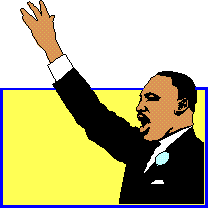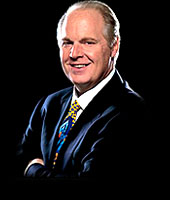 A discussion of the importance of debate with correspondent Khan (begun 8/10/05):
A discussion of the importance of debate with correspondent Khan (begun 8/10/05): A discussion of the importance of debate with correspondent Khan (begun 8/10/05):
A discussion of the importance of debate with correspondent Khan (begun 8/10/05):
On almost every issue, major and minor, public opinion has shifted over time. Examples: slavery, women's rights, Indian mascots. How did this happen? Through debate. It may not have happened fast enough for you to perceive it, but it happened. The winning arguments eventually changed enough individual opinions that the collective "public opinion" changed.
You can choose to be part of that process. Or you can choose to let it happen without your input. I choose the former, naturally.
Rob
The discussion becomes a debate
>> There is no proof that those things would not have changed without the change of public opinion. There. I've said it. I honestly believe that there are / were economic / legal ways to create change that don't involve preaching at people. I believe that individuals can maximize their own experience in our society to a point that public opinion doesn't matter. Best example: I'm a Musilm, and haven't experienced even half the racism that my more religious brothers and sisters have experienced, becuz I don't go out of my way to shove Islam down the throats of non-Muslims. <<
Well, since every change in modern history is accompanied by public debate and protest, I guess we can't resolve this dilemma. Not with anything amounting to "proof."
But you really think some significant changes would've happened without the accompanying discourse? Give me any example of that happening in recent history. Otherwise, I'll have to conclude that the alleged correlation is actually causation. Because that was certainly the case in the most obvious examples: the '60s protests for civil rights and against the Vietnam War.
Seriously, you've never heard of someone who read a book, heard a speech, or watched a TV show or commercial and decided to act? Because all these are examples of being swayed by external persuasion. That is, by some person's words. I'd say this has happened countless times. In fact, I'd say it's the rule, not the exception.
What's the biggest source of political and cultural debate today? How about talk radio? You know, Howard Stern? Rush Limbaugh? Don Imus? You think these people have never changed someone's mind with their arguments? I'd guess they've changed millions of minds.
I'm doing the same thing as they are, but on a much smaller scaler. The main difference between us is that they have a huge audience and I don't. Oh, and that I'm usually right, while they're not.
>> I honestly believe that there are / were economic / legal ways to create change that don't involve preaching at people. <<
I'm reasoning with people, not preaching at them. If they don't see the reason of my arguments, they're being unreasonable.
I know more about Indian mascots, for instance, than anyone who wrote a negative column about the NCAA decision. My position is based on studying every aspect of the issue.
Again, do you have examples of what you're talking about? That major change can happen without public debate? If so, provide them and prove your case. Your "belief" on the matter isn't exactly convincing. <g>

The debate continues (9/8/05)....
>> The problem I have with this is that there's no proof that these major changes were /not/ caused or would /not/ have been caused by cold, hard, fact. <<
There's even less proof that sitting around and waiting would have led to change.
>> Even the Civil Rights Movement, IMO, could have resulted through economic necessity -- indeed, I think that African Americans /would/ have been able to come into power eventually and "buy" their own equality. <<
Blacks and other minorities have always needed economic power to prosper. The need didn't suddenly appear in the '60s; it was constant. The thing that caused the change was the discourse, the activism, and the protests, not some newfound economic necessity.
>> But I ultimately think that necessity and/or physical action are the best agents of change, not rhetoric. <<
Rhetoric is a necessary precursor for most physical action in the public arena.
I thought you didn't like mindless protests of the sloganeering kind. What kind of physical action are you talking about? I'd love to hear how you can get people to act without persuading them with rhetoric.
>> Of course i have. I myself am the product of things I've read and/or seen. The thing is, I believe that it's the action, not the discourse, that's valuable. <<
I believe your beliefs on this matter aren't worth much. <g>
>> Or put another way, paid discourse is one thing -- like your work for pechanga.net, for example. <<
Whether discourse is paid or not is almost irrelevant. The protesters in the '60s weren't paid to protest. Martin Luther King Jr., for instance, was paid for preaching, not for leading marches or boycotts.
Activists like Martin Sheen and Susan Sarandon aren't paid to appear at benefits and rallies. I don't think the Pope is paid, and the president could easily return his salary. The Dalai Lama, Nelson Mandela, Jimmy Carter, Bill Gates, Bono...these leaders have an enormous bully pulpit whether they're paid for their views or not.
Jesus, Mohammed, and Buddha weren't paid for their views. Neither were the Founding Fathers. There must be tons of writers, artists, and scientists who created or invented something without pay. In fact, I'd argue that many of the world's greatest intellectual achievements happened through discourse without pay.
>> But protest or "rabble rousing" for the Hell of it I just never quite understood. I do it for fun to a point, but that fun goes away after a while. <<
There are several intermediate positions between paid discourse and rabble rousing. What I'm doing for Blue Corn Comics, for instance. This has led to paying work, but I'm not getting paid for my website or newsletter.
>> Or NPR. Again, as an addict of all of the above, I'm not disparaging them any, it's just that, IMO, they're smart, becuz they're paid for it. <<
They're smart to get paid, but that doesn't mean unpaid speakers can't be effective also. I refer you to the list of leaders above.
>> My opinion is worthless becuz I'm not. (Hence the definition of the term "worthless") <<
Got a problem with your self-esteem, eh? That's a hindrance to getting ahead.
Who says your opinion is worthless? Was Van Gogh paid the worth of his artistry while he was alive?
There's a difference between getting paid and having value. Money is a measure of value only according to one limited standard.

Limbaugh gets paid...for something
>> IYO -- and that's the problem right there. Somebody like me yelling shit on the Internet for no reason is as right as the next idiot doing the same thing. Somebody like Rush gets PAID for it. <<
Limbaugh gets paid because he's entertaining, not because his views are correct or valuable. Anyone could utter his views. In fact, most right-wing commentators echo the same talking points from party headquarters. Limbaugh is "valuable" because of his rabble-rousing style, not because of his well-considered content.
>> I know more about Indian mascots, for instance, than anyone who wrote a negative column about the NCAA decision. My position is based on studying every aspect of the issue.
So what? <<
Keep up with the discussion, son. You implied I was preaching at people. I explained how I'm reasoning with them, not preaching at them, using Indian mascots as an example.
>> Again, do you have examples of what you're talking about? That major change can happen without public debate? If so, provide them and prove your case. Your "belief" on the matter isn't exactly convincing. <g>
What would I gain by doing that. <<
What would you gain by proving your unproven case? You'd sound like someone who might know what he's talking about instead of someone who doesn't. <g>
>> Do you see my point yet, Rob? <<
I see you can't prove your point. Perhaps this has something to do with why you haven't found your ideal job. I have found my ideal job because I can prove my points. I did it on an unpaid basis, honing my rhetorical skills, and then got hired because of it.
>> to prove my point to somebody whose opinion, again, to me is about as valuable as my own. <<
I thought your standard for value was the money standard. I'm getting paid directly to write about Indian gaming and indirectly to write about things like mascots. By your standard, my opinion must be a lot more valuable than yours.
>> I'm perfectly comfortable with "agree to disagree," becuz I'm not going to gain anything by convincing you of my viewpoint. <<
You'd gain the ability to convince others of your viewpoint. I suspect this ability is lacking now.
>> If anything, I'm wasting time that could be spent earning money. <<
I could've said that about my unpaid work too. And yet, that work eventually led to paying work. The question isn't whether I've missed your point, it's whether you've missed mine.
>> Eh, I don't think those thoughts are all that valuable. <<
Yep, low self-esteem. <g>

The debate continues (12/14/05)....
>> Do you want to be right, or do you want to improve conditions for X group of people? <<
Both. Being right—i.e., having the facts and evidence on your side—is ultimately what persuades people. IOW, being right serves the goal of persuasion. That's the case with Indian mascots and with the war on Iraq.
>> Better to figure out how the opponent thinks, and convince him / her on his / her own terms, IMO. <<
The opponent thinks Saddam had WMDs and was responsible for 9/11 because Bush promoted those lies. Bush also promoted the fiction that the war on Iraq would be relatively quick and painless—that Iraqis would greet us as liberators. Now that events have proved these assertions false, Americans are changing their minds. The truth—not empty arguments—is setting them free.
>> You buy a business. You employ people. You give them health insurance. You improve the economy. Your business does humanitarian work. You open / donate to a school. You lobby Congress with your wealth. <<
People were hiring blacks and improving the economy throughout the 40s and 50s. That didn't give them civil rights. The mass movement—e.g., debate, protests, and boycotts—did.
There still is no critical mass of blacks rich and powerful enough to persuade Congress to act. If blacks used this method, they'd still be second-class citizens.
>> Long story short, you as an individual get off your ass and take action. <<
Sounds incredibly naive. But go ahead...give me some examples of how this individual action produced social change without the aid of public debate and protest. I'm waiting.
Why waste your time with these hypothetical solutions that might or might not work? Mass movements involving public protests are proven engines of social change. Gandhi used these techniques and you supposedly consider him your hero. How can he be your hero if you disagree with his approach?
>> If you're nobody, become somebody. Maximize your own effectiveness as a person, and then once you get there, share the wealth. <<
Yeah, because selfish bastards who think only about maximizing their wealth care so much about other people...not.
>> If you're a poor person, don't carry the burden of helping every disenfranchised soul. Make your family, friends, and self happy. Then once you're successful, see what you can do. <<
This is ridiculous. There's absolutely no reason people need to wait for decades or generations to pass before they act. Blacks and American Indians, to use two examples, triggered a radical improvement in their circumstances within 10 or 15 years by protesting. Why try another technique when that technique worked?
>> I don't understand the logic in making the average 9-5 wage slave feel like it's /his/ or /her/ fault that X is wrong with America, and that the solution is to elect some politician to take care of it. <<
You don't understand politics, I guess. You certainly don't understand Democratic politics. You don't even understand the stereotypical view of Democratic politics, which is to blame the rich and powerful, not the average wage slave.
>> If you're small, take ownership of your own life. If you're big, help others do the same. Simple as that. <<
That was the dominant mindset throughout American history until the New Deal era. Here's a news flash for you, buddy: it didn't work. Relying on the kindness of wealthy patrons and the rising tide of capitalism did little to alleviate poverty and nothing to advance civil rights. That's precisely why people had to protest: because the self-satisfied upper and middle classes did nothing to change America.
>> You named a lot of people there who aren't in the same category, or getting the same things out of their activities. <<
What category are you talking about? Bill Gates and the others are advocating social change and they aren't being paid for their advocacy.
>> For example, none of the above cared or valued money. They did what they did /to/ help others, and that's what they got out of it. <<
So what? You said the only discourse that matters is paid discourse. I refuted your silly argument with a slew of relevant counterexamples.
>> If your goal is helping others, pick what /works/. Whining isn't working -- if anything, it's causing the masses to vote Republican, sending you even further from your goals than before. <<
The civil rights protesters in the '60s and the antiwar protesters in the 2000s arguably weren't whining. But if you think they were...again, so what? The point is that whatever you call them, their methods worked. They stopped the Vietnam war and they're gonna stop the war on Iraq.

Founding Fathers were in it for the money?
>> I'm amazed that you actually believe that the Founding Fathers weren't in it for the money. <<
Is that your idea of an argument? People like George Washington were already wealthy when they took up the cause of rebellion. Many of the founders had no direct interest in the British taxes because they weren't importers or exporters.
Sure, money was one factor, but it was hardly the only factor. Not by a longshot.
>> I'm not necessarily referring to monetary reward, I'm referring to some kind of incentive reward. <<
For starters, if that's what you meant, you didn't say it clearly. "Paid" refers to money, not psychic rewards.
More important, this argument is worthless because you can never prove someone's intentions. You can always claim people do something because it makes them feel good.
>> Again, my implicit argument is that most Liberals take up causes for self-aggrandizement (sp?), not, like Muhammed (PBUH), Jesus (PBUH) or Buddha, out of a genuine desire to help others. <<
Your implicit argument is stupid. You can't prove it and you have no evidence for it. This is the epitome of stupidity: spouting nonsensical theories without a shred of evidence.
>> Having worked in the entertainment industry, I know that's why many celebrities do it. <<
You're no closer to the entertainment industry than I am. I've lived in Los Angeles all my life and immersed myself in decades of entertainment news. Meanwhile, you've worked on the periphery of Hollywood for a couple of years. Big deal.
More important, you wrote "most liberals," which has nothing to do with most entertainers. Why a few hundred entertainers act is irrelevant to why 72 million registered Democrats act. 99% of us aren't motivated by fame or wealth, thank you very much.
Sadly, you sound exactly like a dittohead who can't process what he hears on Rush Limbaugh. The right-wing attacks on Hollywood liberals literally have nothing to do with the vast sweep of liberal and progressive thought in America. At the moment, our leaders are John Kerry, Hillary Clinton, Howard Dean, and Harry Reid, not Sean Penn, Barbra Streisand, Mike Farrell, and Tim Robbins.
>> Who says your opinion is worthless? Was Van Gogh paid the worth of his artistry while he was alive?
I don't understand your point here. How does this relate to opinion? <<
You said paid discourse is the only discourse that matters. Writers and artists are among the many who have shaped the world without being paid for it.
>> Encouraging others to sit around and whine, however, makes no sense to me. <<
Who's doing that? I'm encouraging people to debate, protest, and act, not to sit around whining.
>> But you're /arguing/! IOW, you're not "winning" any of your battles. <<
I'm arguing with facts and evidence, not preaching at people with sermons. And again, I'm helping our side win battles—Indian mascots and Iraq, to use two examples.
>> Instead, you're being met with convicted opposition. How is that furthering your cause? <<
You can blather all you want about how and why we're not winning, and I'll simply repeat that you're wrong. We are winning in the two cases I've used as examples.
>> Again, if anything, you're inspiring those who disagree with you to fight harder against you (sort of like the insurgency in Iraq. ;) <<
Repeat: We're winning in these cases, not losing. Why don't you find a case where we're NOT winning so you can offer an intelligent argument?
>> To YOU. What do I gain by sounding good to you? <<
You sound that way to everyone. You just don't realize it because you haven't put your arguments out there. You haven't tested them in the marketplace of ideas, as I have.
>> The thing is, you're presenting yourself (correct me if I'm wrong) as someone who's genuinely trying to help these people, not somebody who's making money off of sharing their plight with everyone else. <<
At the moment I'm doing both. But I was advocating for Native and multicultural issues long before I got into Indian gaming, so there's no necessary connection. If you can earn money while doing good works, that's better than doing good works while wasting your time on something irrelevant.
>> Again, you might have something there. Do you want to teach me how to be a more persuasive writer? I'm up for that. <<
Sure, in theory. Is there something you want to write about? You can always pass something by me and we can discuss how effective it is.
Quotes on the clash of ideas
Some of the greatest thinkers in history agree: Debate is good for people, society, and the world.
Conformity is the jailer of freedom and the enemy of growth.
John F. Kennedy
He who joyfully marches in rank and file has already earned my contempt. He has been given a large brain by mistake, since for him the spinal cord would suffice.
Albert Einstein
[The] world [is] in everlasting conflict between the new idea and the old allegiances, new arts and new inventions against the old establishment.
Joyce Cary, English novelist
Change means movement. Movement means friction. Only in the frictionless vacuum of a nonexistent abstract world can movement or change occur without that abrasive friction of conflict.
Saul Alinsky, American political activist
Light is meaningful only in relation to darkness, and truth presupposes error. It is these mingled opposites which people our life, which make it pungent, intoxicating. We only exist in terms of this conflict, in the zone where black and white clash.
Louis Aragon, French poet
The understanding that underlies the right decision grows out of the clash and conflict of opinions and out of the serious consideration of competing alternatives.
Peter Drucker, management guru
There is only one thing more powerful than all the armies of the world, that is an idea whose time has come.
Victor Hugo
The power to question is the basis of all human progress.
Indira Gandhi
In a time of universal deceit, telling the truth is a revolutionary act.
George Orwell, 1984
All great truths begin as blasphemies.
George Bernard Shaw
All progress has resulted from people who took unpopular positions.
Adlai E. Stevenson, lawyer, politician, and presidential candidate
It is proof of a base and low mind for one to wish to think with the masses or majority, merely because the majority is the majority. Truth does not change because it is, or is not, believed by a majority of the people.
Giordano Bruno

Difficulties are meant to rouse, not discourage. The human spirit is to grow strong by conflict.
William E. Channing, American moralist, author, and clergyman
The ultimate measure of a man is not where he stands in moments of comfort and convenience, but where he stands at times of challenge and controversy.
Martin Luther King, Jr.
Great art is the expression of a solution of the conflict between the demands of the world without and that within.
Edith Hamilton, American writer and educator
In order to write really well and convincingly, one must be somewhat poisoned by emotion. Dislike, displeasure, resentment, fault-finding, indignation, passionate remonstrance, a sense of injustice are perhaps corrosive to the container but they make fine fuel.
Edna Ferber, author, 1963
Words ought to be a little wild, for they are the assaults of thoughts on the unthinking.
John Maynard Keynes
"Do you always have to be cynical?"
"It's often the quickest way to the truth."
Frederick Raphael, "An Older Woman" (short story)
Related links
Jawboning as the best solution
Why does Rob keep criticizing?
|
. . . |

|
All material © copyright its original owners, except where noted.
Original text and pictures © copyright 2007 by Robert Schmidt.
Copyrighted material is posted under the Fair Use provision of the Copyright Act,
which allows copying for nonprofit educational uses including criticism and commentary.
Comments sent to the publisher become the property of Blue Corn Comics
and may be used in other postings without permission.